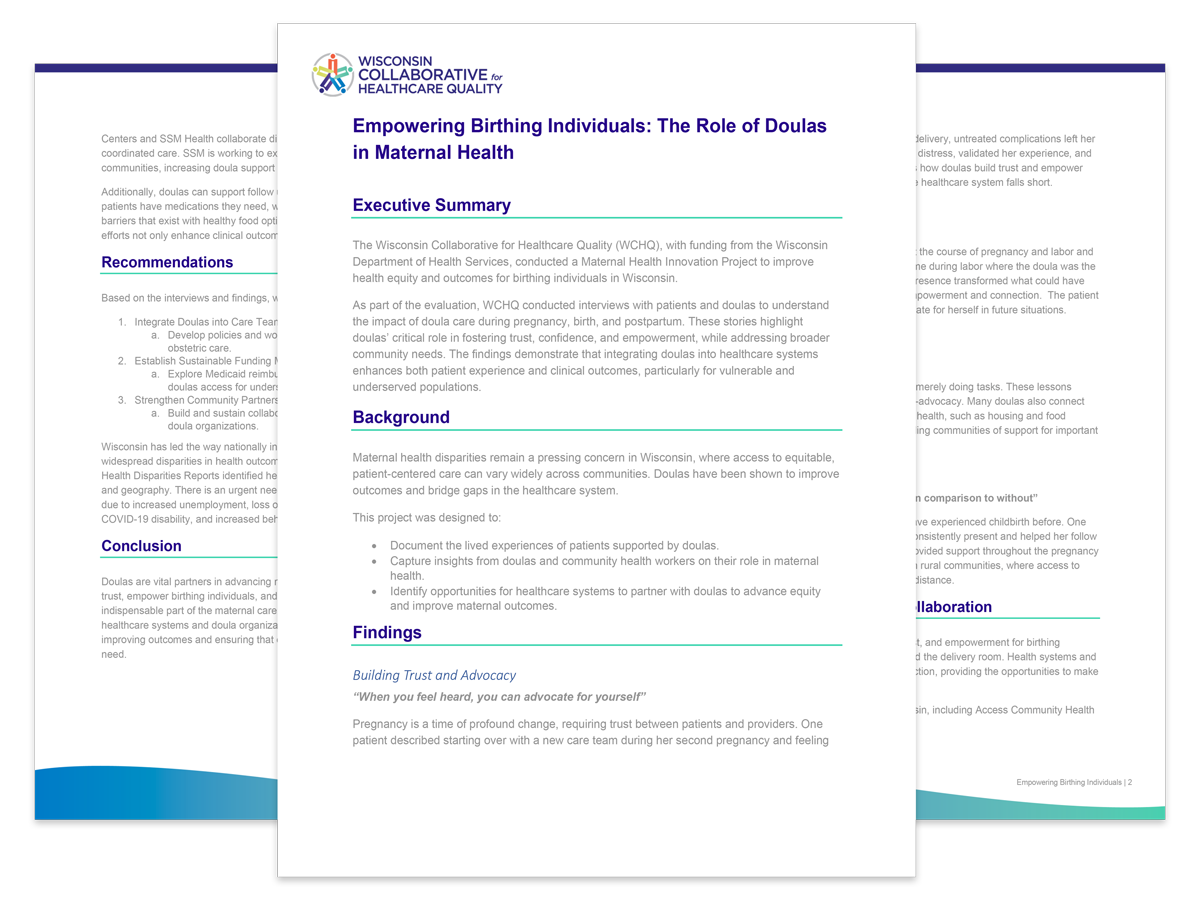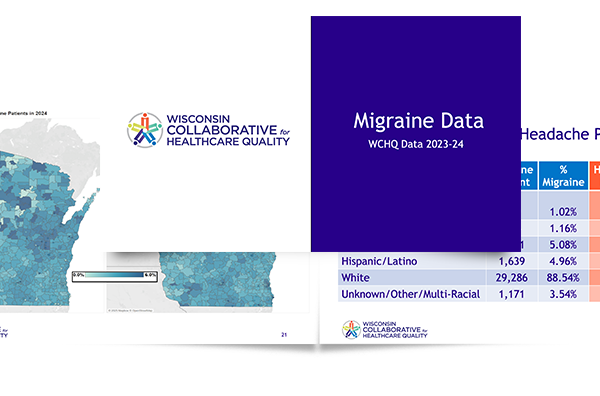WCHQ Research

Doulas Making a Difference in Wisconsin
Our Maternal Health Innovation Project provides insights into how doulas are transforming maternal care throughout the state.
Through interviews with patients and doulas, we heard inspiring stories of trust, advocacy, and empowerment. Doulas help bridge gaps in care by listening to patients, validating their experiences, and ensuring their voices are heard, especially in communities that face barriers to care.

Improving Migraine Care in Wisconsin:
Insights from WCHQ Data
This report marks the beginning of a multi-year effort to elevate migraine care across Wisconsin. With focused collaboration and continued data sharing, we can reduce disparities, strengthen care quality, and improve the lives of those affected by migraine.
Migraine is a prevalent and disabling neurological condition affecting over 40 million Americans. In Wisconsin, the burden of migraine has been historically underrecognized in primary care. This final report summarizes the findings of WCHQ’s multi-system data analysis and stakeholder collaboration aimed at improving migraine care pathways. Our goal is to use this analysis to guide primary care-based interventions that increase access to timely, effective, and equitable migraine management.

Mapping Obesity in Wisconsin:
2023 Wisconsin Obesity Maps
The Wisconsin Collaborative for Healthcare Quality (WCHQ) has released the 2023 Wisconsin Adult Obesity Maps, providing a comprehensive view of adult obesity rates across the state. These maps highlight the prevalence of obesity among adults and uncover disparities that exist between different regions and populations in Wisconsin.
The 2023 maps leverage data submitted by WCHQ members to identify patterns and trends in obesity, enabling health systems and community leaders to focus on targeted interventions for prevention and treatment. By visualizing these disparities, WCHQ aims to draw attention to the critical need for collaborative efforts in treating obesity and improving health outcomes statewide.
Explore the Report and Maps
These maps serve as a valuable resource for public health professionals, policymakers, and healthcare providers working to treat obesity in Wisconsin.

Opportunities to Increase Access to Behavioral Health Care in Wisconsin
WCHQ partnered with The Medical College of Wisconsin (MCW) to understand the current state of Integrated Behavioral Health (IBH) within Wisconsin health systems. The goal of our project was to improve IBH services within health systems and help providers understand the patient experience. This white paper reviews the need in Wisconsin, provides an overview of IBH and summarizes the project's outcomes.

WCHQ Brief Reports: Pandemic Impacts on Disparities
A series of reports released by the Wisconsin Collaborative for Healthcare Quality and Healthy Metric provide an initial look at the impact the pandemic has had on health care disparities. The reports cover three chronic conditions, diabetes, colorectal cancer screening and high blood pressure from the onset of the pandemic through 2020. The reports, by topic, are below:
WCHQ’s reports, and the work of many others, will draw attention to and promote the development of targeted interventions to eliminate health care disparities.

Wisconsin Health Disparities Report
The Wisconsin Collaborative for Healthcare Quality (WCHQ) and its member organizations developed the Wisconsin Health Disparities Reports to identify where disparities in health outcomes and care exist In Wisconsin and to help inform and accelerate programs that are working to eliminate disparities. WCHQ hopes that by identifying and publicly reporting these differences, this report will draw attention to and promote public accountability, improvement and action by multiple stakeholders.


